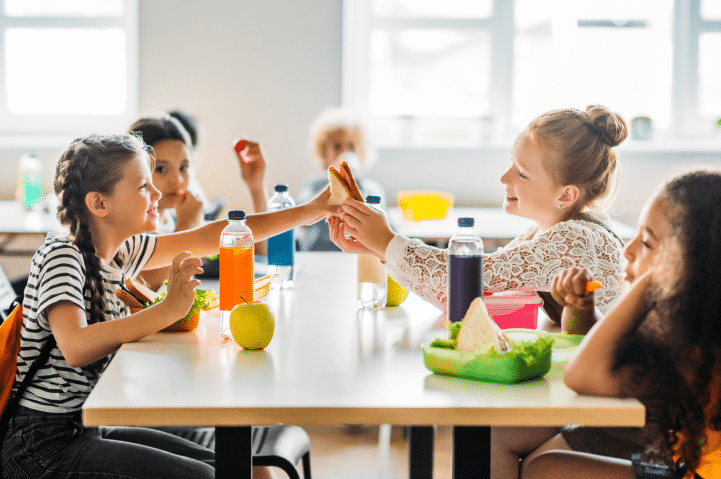Sign up
Schools can register for the School Meals Programme and choose from two programme options: ‘Eating at School’ and ‘Grocery Cards’. More information can be found via the buttons below.
Every child deserves to develop as well as possible, regardless of where they grow up or their parents’ or caregivers’ income.
The School Meals Programme aims to ensure that as many pupils as possible attend lessons with a full stomach. A full stomach is a prerequisite for effective learning.
In 2022, we noticed that more and more pupils were coming to class hungry. Thanks to the School Meals Programme, this no longer had to happen. The programme targets primary and secondary schools where at least 30% of the pupils come from low-income households.
The Youth Education Fund (JEF) and the Netherlands Red Cross organise this programme on behalf of the Ministry of Education, Culture and Science (OCW).

Schools can register for the School Meals Programme and choose from two programme options: ‘Eating at School’ and ‘Grocery Cards’. More information can be found via the buttons below.
Curious about what other schools are saying about the programme? Watch the videos.